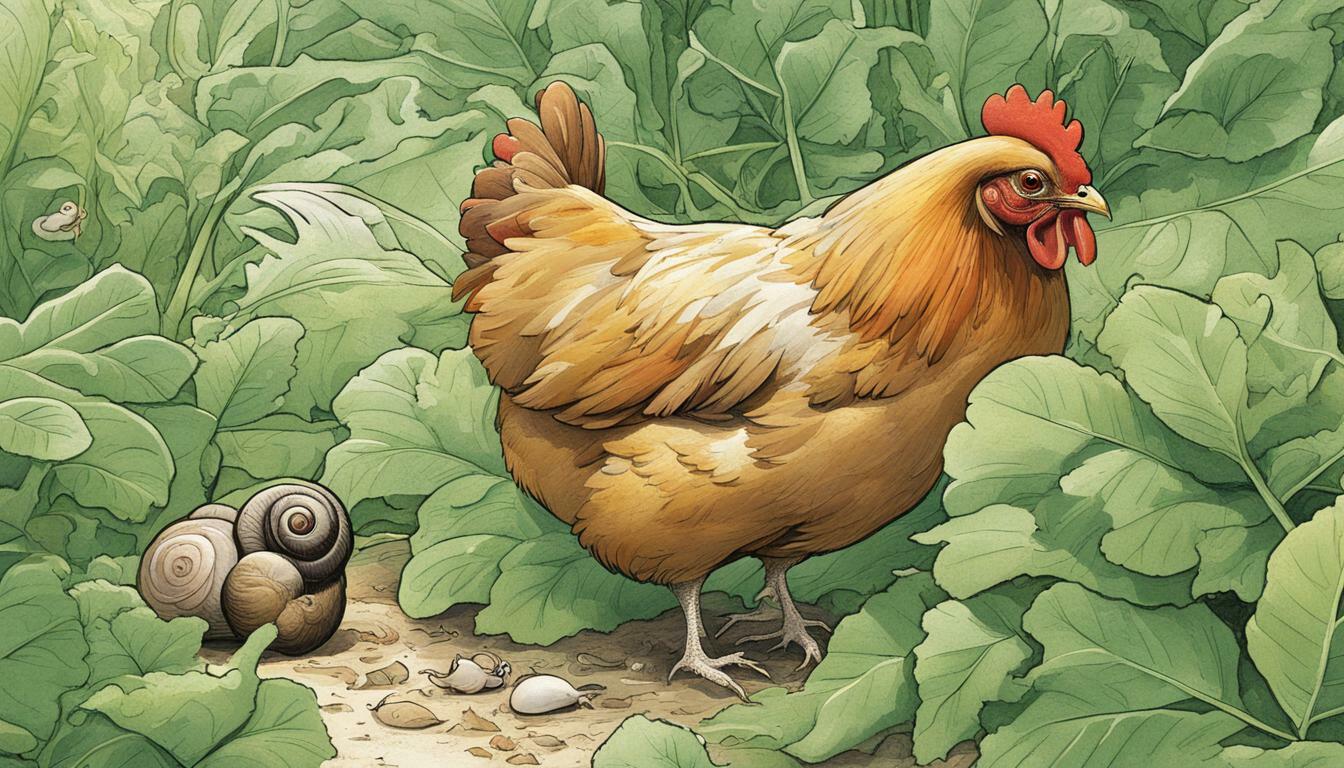Can Chickens Eat Thyme? What You Need to Know

Table of content:
Thyme is an aromatic, antimicrobial herb that most backyard chicken keepers have in their spice collection or growing in the garden. Its earthy, subtly lemon flavors enhance eggs, meat, vegetables and more. But can chickens eat thyme too or is this Mediterranean herb unsafe or unappetizing for feathered flocks?
Thyme is a Mediterranean perennial herb that has been used for centuries both for cooking and medicinal purposes. There are over 300 varieties of thyme, with common thyme and lemon thyme being the most popular for culinary use.
Thyme contains compounds like:
- Thymol
- Carvacrol
- Flavonoids
- Phenols
- Camphor
These compounds give thyme its antiviral, antimicrobial, and antioxidant properties. Thyme has been used as a medicinal herb for centuries to treat coughs, inflammation, indigestion, infections and more.
When used sparingly for flavor in cooking, thyme is considered safe for human consumption. But what about chickens? Should this aromatic herb be shared with backyard flocks too?
Can Chickens Safe Eat Thyme?
The short answer is yes, chickens can eat thyme!
Both common and lemon thyme provide health and flavor benefits that make them a nice addition to the diet of backyard chickens.
Thyme is safe for chickens when mixed into feed or free fed in moderation. It should not make up the bulk of their diet but can be a supplemental source of nutrition.
A few sprigs of fresh thyme or a teaspoon of dried thyme per chicken per day is a good rule of thumb. Too much can upset digestion.
Benefits of Feeding Thyme to Backyard Chickens
Here are some of the biggest benefits of sharing thyme with backyard flocks:
1. Boosts Immune System Health
Like garlic and oregano, thyme contains thymol – a compound with powerful antibacterial and antifungal properties that boosts immune health.
Thyme helps fight off pathogens like E. coli and Salmonella that can infect flocks and end up contaminating eggs or meat.
A Michigan State University study on using herbs like thyme, cinnamon, and star anise in chicken feed found they helped control and limit Salmonella bacteria.
2. Increases Antioxidant Levels
Thyme contains flavonoids like apignen, luteolin, and naringenin that act as antioxidants for chickens.
Antioxidants boost immunity, reduce inflammation, fight cell damage by free radicals and may lower chickens’ risk for problems like fatty liver hemorrhagic syndrome.
3. Aids Digestion
The compounds in thyme promote secretion of digestive enzymes and juices that facilitate better digestion and nutrient absorption.
Thyme helps relieve digestive issues like diarrhea or constipation and may boost feed conversion rates and growth. This helps save on feed costs.
4. Egg & Meat Flavor
Like other herbs, thyme infuses eggs and meat with more complex, savory flavors.
As chickens peck on fresh or dried thyme, those flavors translate to better tasting eggs, meat and broth.
Nutrition Value of Thyme for Chickens
Thyme itself should not provide complete nutrition for chickens but offers supplemental vitamins, minerals, and phytochemicals.
These are the main nutrients found in common thyme:
| Nutrient | % Daily Value per 100 g |
|---|---|
| Vitamin A | 160% |
| Vitamin C | 160% |
| Vitamin B6 | 17% |
| Iron | 148% |
| Calcium | 105% |
| Magnesium | 16% |
Thyme also contains trace amounts of zinc, copper, potassium and phosphorus.
So while not packed with protein, complex carbs or fat energy, thyme boosts levels of vitamins, minerals and disease-fighting compounds.
How to Feed Thyme to Backyard Chickens
Here are some easy ways to incorporate thyme into a backyard flock’s diet:
Give Them Fresh Sprigs
One of the simplest ways chickens can eat thyme is to hand out a few fresh sprigs per chicken.
Hang bunches around the run or coop or stuff stems into a treat ball. Chickens will nibble the small flavorful leaves.
Make sure they also have access to grit to help grind up the fibrous stems.
Mix Dried Herbs into Feed
For a more evenly distributed dose, add a teaspoon of dried thyme per chicken to feed. Use lemon thyme for more zing.
Mix well so each mouthful delivers some thyme goodness. This infuses eggs continuously too.
Add to Homemade Treats
Make herb-infused treats with thyme and other herbs to supplement commercial feed. These span from chick to senior hen health.
Some fun homemade options are:
- Thyme rice ball treats
- Herbed yogurt drops
- Thyme chick crumbles
- Frozen thyme cubes
Rotate treats to add variety and nutrition.
Provide Thyme Sprigs in the Run
To encourage natural chicken behavior like pecking, hang fresh thyme sprigs around their outdoor enclosure.
You can use twine or tie bunches to low roosts or hardware cloth. This gives them thyme to nip on all day.
Make sure they trim and eat the sprigs within a day before they wilt to keep things fresh. Then replenish with new thyme stems.
Thyme Foraging Tips
If you have established thyme plants, chickens may dig them up and nibble while they forage and roam. Here are some tips:
- Use chicken wire or fencing rings around in-ground herbs.
- Grow herbs like thyme in containers on platforms chickens can’t access easily. Elevated gardens keep herbs clean and protected.
- Give chickens heavy Objects to peck on instead of pulling up thyme roots like cabbage, lettuce or pumpkin.
- If chickens pull up young starts, replant with protectors to reestablish.
Monitor how aggressively chickens go for any thyme plants. It’s best to provide some protection in the garden while also feeding it hands-on daily.
Potential Issues with Chickens Eating Thyme
While perfectly safe in moderation, too much thyme can cause problems for chickens. Here is what to watch out for:
1. Digestive Upset
Too many spices and herbs at once may irritate chickens’ gastrointestinal tract leading to issues like diarrhea, constipation or upset stomachs.
It’s best to introduce new herbs slowly and watch for loose, smelly droppings or changes in feeding patterns.
Reduce the dosage if any chickens show signs of irritation until their system adjusts.
2. Egg Flavor Changes
Overdoing thyme makes eggs taste overly earthy. If family or customers complain the flavor is too strong, cut back how much gets mixed into feed.
Free choice thyme sprigs lead to more gradual infusion so consider pulling back on large mixed in doses.
3. Liver & Kidney Stress
Thyme contains ketones like thymol that may tax chickens’ organ systems if consumed excessively.
Stress on the liver and kidneys can cause complications long term so moderation is key.
Routinely evaluate chickens’ overall health if providing daily thyme. Check for signs like lethargy, poor production, weight loss or feather quality declines that can indicate organ trouble that may require vet assistance.
By starting with small amounts of thyme for backyard chickens and staying watchful of their health, keepers can safely provide this immunity and flavor boosting herb.
Frequently Asked Questions about Chickens and Thyme
Here are answers to some common questions about feeding thyme to backyard chickens:
What kind of thyme can chickens eat?
Chickens can eat both common thyme and lemon thyme varieties. The lemon scented thyme may be more enticing and provide stronger antimicrobial compounds. Other herb varieties are also chicken safe in moderation like basil, oregano, sage and dill.
Is thyme high in vitamins chickens need?
While not loaded with complete nutrition, thyme does provide supplemental vitamins A, B6 and C plus minerals like calcium, iron and magnesium that chickens need to stay healthy. So it makes a nice addition to a balanced diet.
Will thyme make chicken eggs taste bad?
Used moderately, thyme should infuse pleasant herbal flavors into eggs that spice fans appreciate. But overdoing it can make eggs seem overly earthy. Adjust thyme amounts based on taste preferences. Starting with a teaspoon or less per bird daily allows the flavor to build slowly.
Can I give chickens thyme essential oil?
Concentrated thyme essential oils can be toxic to chickens. It’s safest to stick to fresh sprigs or dried thyme in moderation. Thyme oil lacks fiber that helps buffer chickens’ digestive systems.
Is thyme safe for baby chicks too?
Very young chicks may struggle to digest fibers from woody thyme stems. For delicate digestive systems under 4 weeks old, it’s best to finely mince tender thyme leaves to safely supplement starter feed. Then transition to sprigs as they mature.
Final Thoughts
In small doses, backyard chickens can certainly eat and benefit from thyme!
Its antiviral, antioxidant and digestive stimulating qualities provide a health boost. And the flavor compounds translate into better tasting eggs and meat. Plus chickens enjoy nibbling the tiny fragrant leaves.
Be sure to introduce thyme slowly and pay attention to how each tolerates it long term. Moderation is the key to harnessing benefits without overtaxing delicate digestive or organ systems.
But used wisely, thyme is a nice addition to most backyard flocks’ diets and gardens!
Welcome. I’m Adreena Shanum, the proud owner of this website, and I am incredibly passionate about animals, especially poultry. I founded adreenapets.com as a labor of love, stemming from my desire to share my knowledge and experiences with poultry enthusiasts worldwide.




